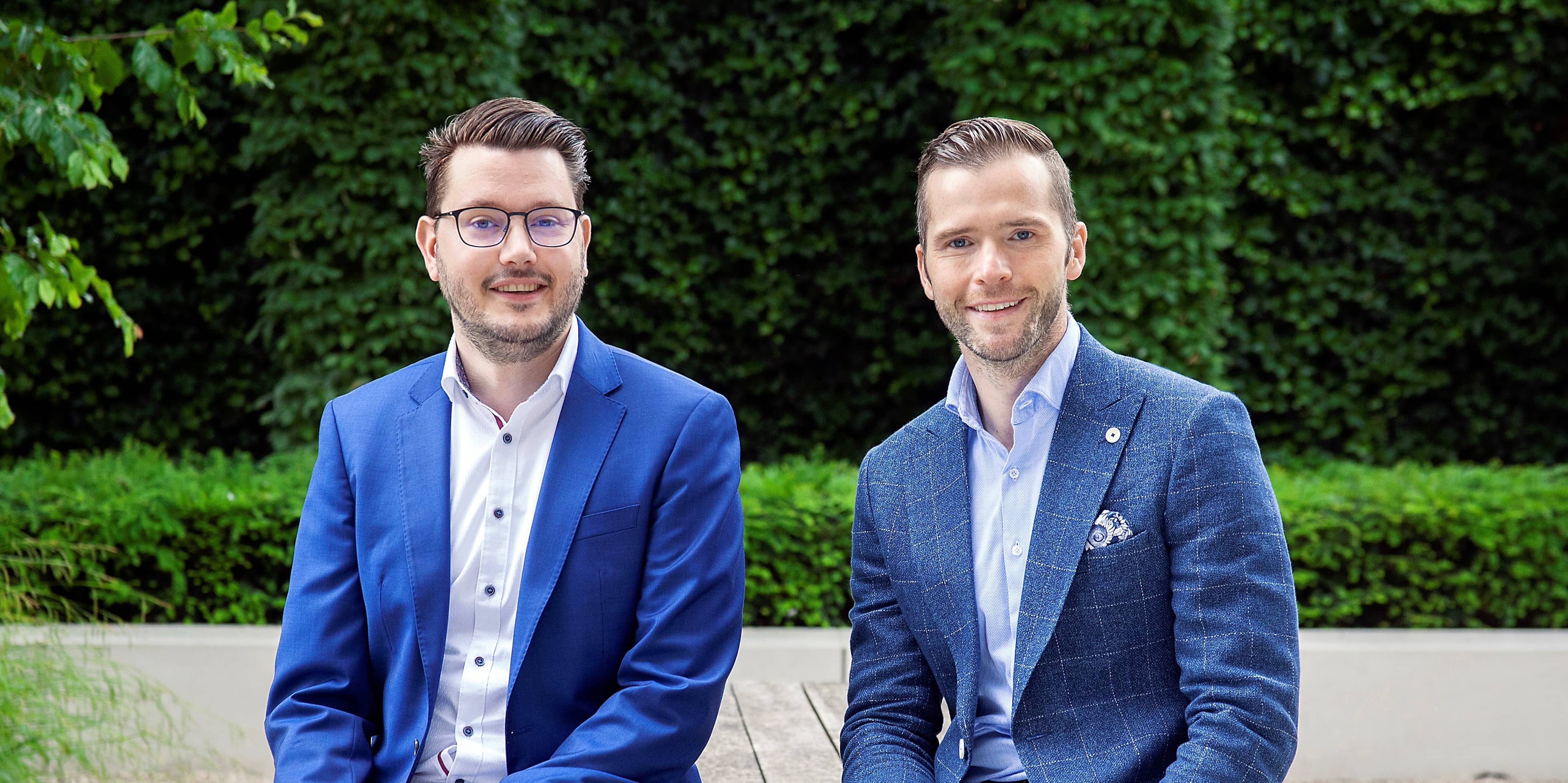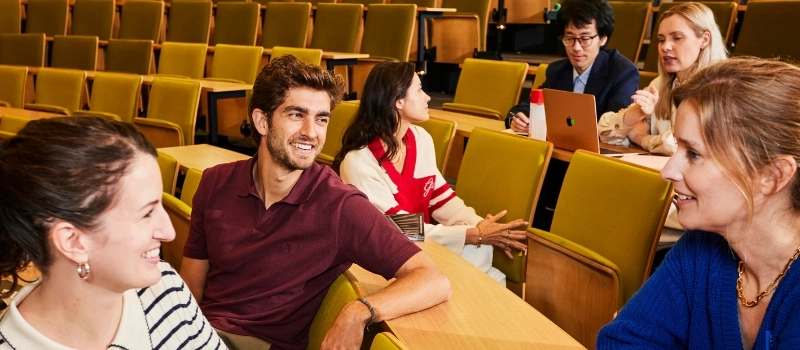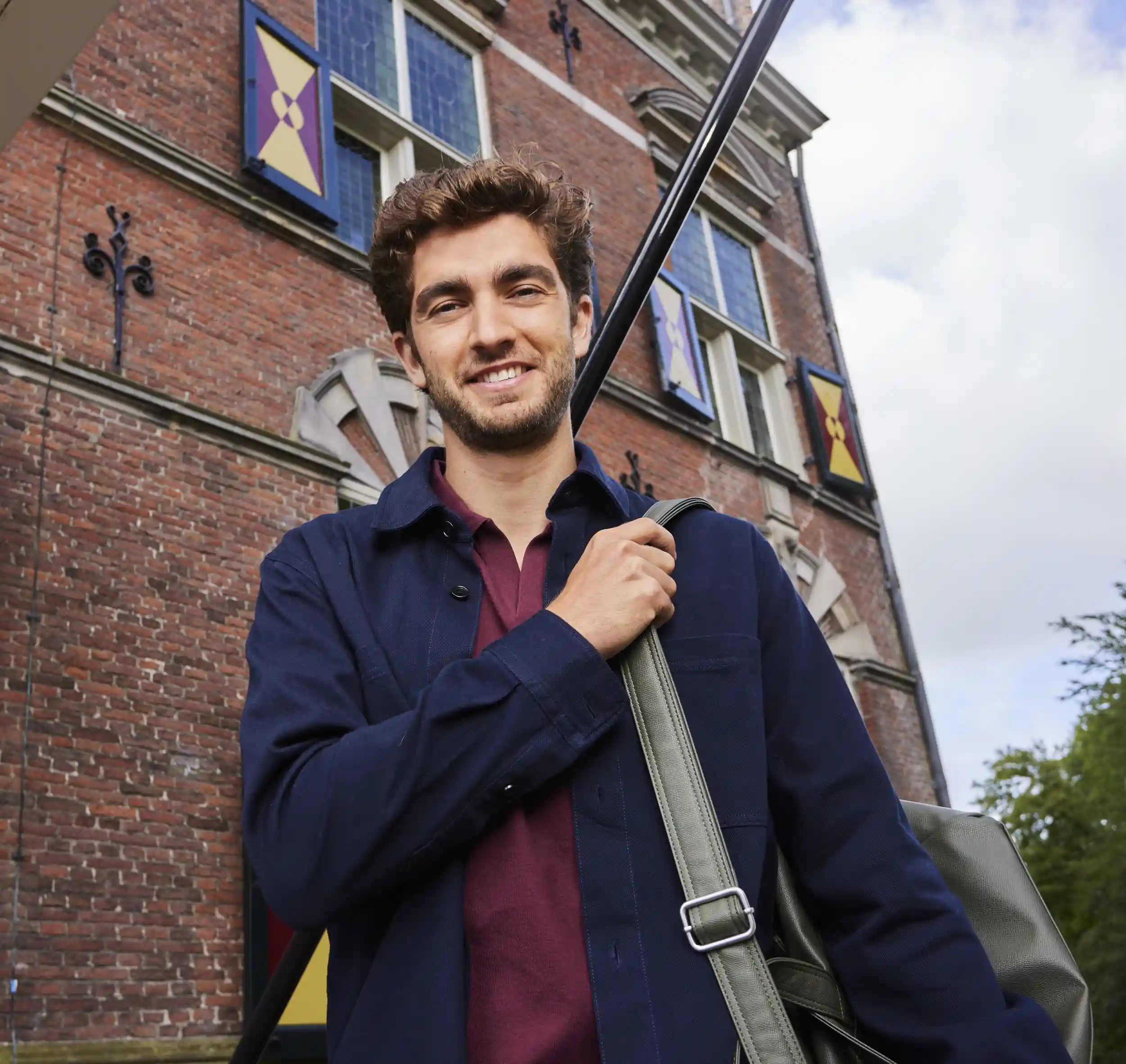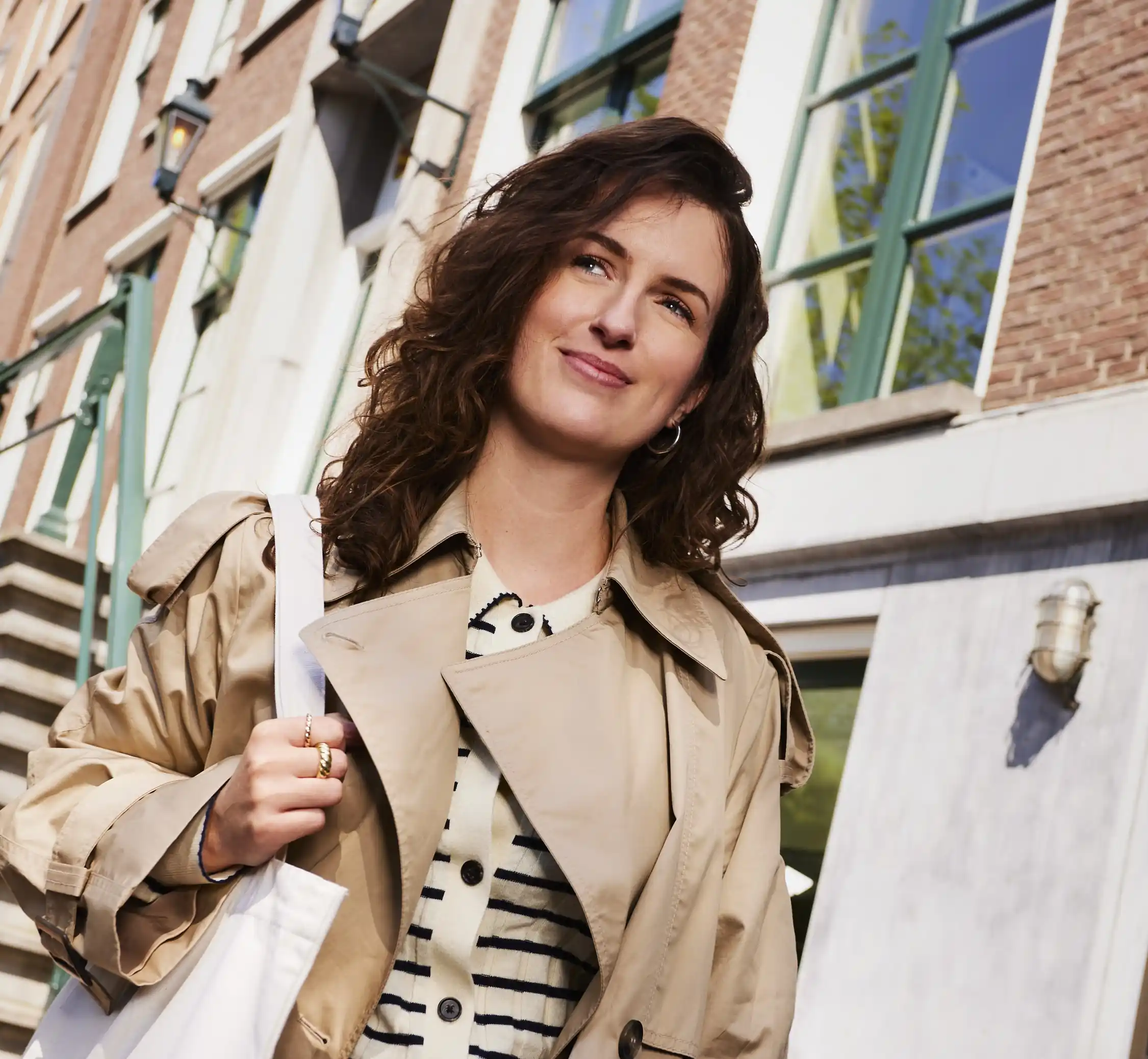The fact that many international students choose Nyenrode Business University's full-time MBA program makes it all the more interesting for Dutch students. Niek Vos and Raphaël Spanjaard, who will complete the MBA program this year, made a conscious decision to attend this internationally oriented program. Niek: "There are major cultural differences between countries in how you deal with confrontation or how you resolve conflicts; you can learn a lot from each other in this respect."
With his background, it is no surprise that Niek chose an international education. "In 2011, I completed my bachelor's degree in Animal Sciences, after which I started working for a company that works internationally with animal genetics. I lived in Brazil for a few years before quitting my job to follow the full-time MBA in the Netherlands, so I could prepare for the next step in my career. I definitely wanted to do that in an international environment; I've already experienced how much you can learn from other cultures and ways of thinking."
Strategic pressure-cooker
Raphaël also wanted his career to grow further and was also looking for some personal growth and development. The international nature also played a role for him in choosing the MBA. "I have a background in consulting, but want to be able to make the step into a more strategic role. Within this international program, I expected not only to step into a strategic pressure cooker, but also to get different international perspectives." Which worked; the cultural differences taught him a lot about himself and his role in a group. "With my direct way of communicating, I could get quite bogged down in conversations at first. The lessons, exercises, and training we had exposed the cultural differences and gave us tools to start the conversation. I learned to ask questions like: 'How do I come across to you? If I say this like this, what does it do to you?” That's how I found out where those conversations got bogged down. Which is incredibly insightful."
Sustainability in practice
Different perspectives enrich your point of view enormously, Raphaël continues. "In the Sustainability module, for example, we heard from fellow students that a hot topic like sustainability is, in practice, a luxury subject for countries where most people live in poverty. I didn't think about that before." Niek adds, "I think sustainability is one of the modules that can set us apart in the job market. There are still quite a few companies that don't know how to implement this. We learned how you can analyze at a deeper level how sustainable your company or product is, but also how you can draw this issue wider than just within the company. For my assignment, for example, I had chosen the meat production in Brazil as the subject, and then you dive very deeply into that matter; what do different players like the government, activists, academia, and other involved organizations say about it? Ultimately you want to tackle the sustainability issue with all sectors together, and then you must know what is going on and what is possible. We certainly learned that in this module.”

Cultural differences
The diversity of the group was also an advantage in the Meet the CEO sessions, Niek believes. "For that module we researched for a European Hotel chain how they could bring in the next generation of customers and pitched our ideas to the CEO. The CEO invited us to present it again in front of the entire management team at the office. I think it was such a success partly because, as an international group, we had completely different ideas and really complemented each other in that." Raphaël also mentions the lectures with Professor Désirée van Gorp, preceding this module. "During these sessions, attention was paid to cultural differences, questions were asked such as: how do you engage in conversation in different cultures? What role do different people take in a group? During these kinds of sessions, I learned to take more of a coaching role as a leader than a directing role."
Creating cross-pollination
After the program, Niek is thinking about going into strategy consulting for a few years and then returning to the agricultural sector. "With the insights from the training and the consulting experience I want to gain, I think I can go back to agriculture with even more impact. I’m convinced that things can be different there, and thanks to this training I now have an idea where to start, what can be improved and how." Raphaël is setting his sights again on a position as a consultant. "All the tools I now carry in my backpack add value to who I am as a person and what I can do for an organization, our society, and the world as a whole. It lures me to see different organizations and create a cross-pollination between companies that are primarily concerned with the question: What helps us become better as people and the world? I think that's a great way to look at society.
Tags
Related programs
-
Impact MBA
Start date: March and September 2025Language:- English
Location:- Amsterdam
- Breukelen
With Impact MBA you become a leader fit for a sustainable and technological future.
View program
-
Impact MBA Executive
Start date: March 2026Language:- English
Location:- Breukelen
A two-year part-time boost for your personal leadership development.
View program
-
Impact MBA Full-time
Start date: September 2026Language:- English
Location:- Breukelen
A one-year full-time accelerator for your career in the Netherlands and abroad.
View program

